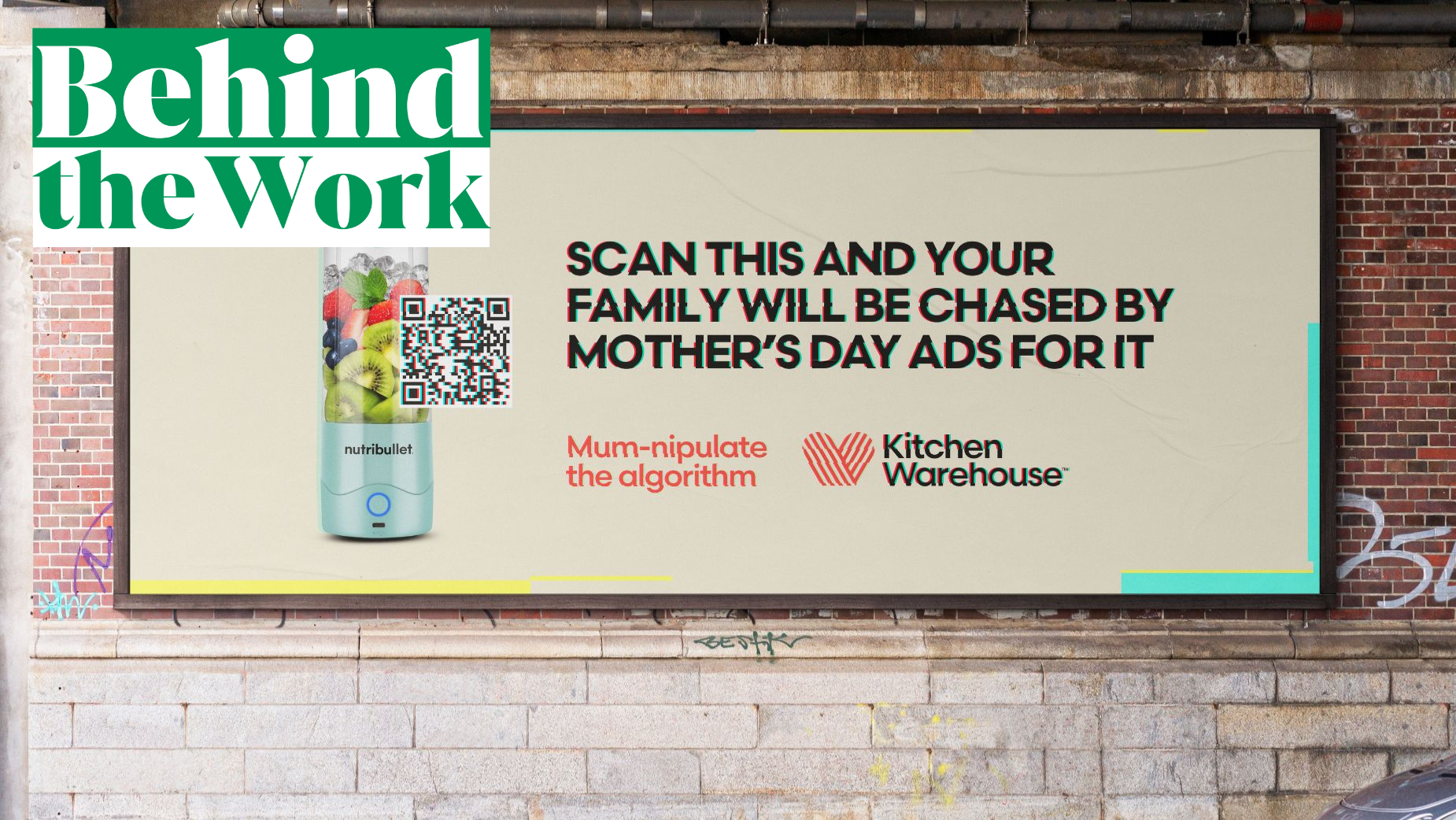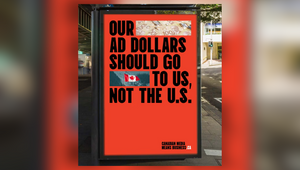
How Kitchen Warehouse Helped Mums Hack Algorithms to Grow Sales by 20%

Kitchen Warehouse partnered with Special Australia and Hatched to launch ‘Mum-nipulate The Algorithm’, a campaign enabling mothers to influence their families' ads by selecting desired Mother’s Day gifts through QR codes, social shares, and audio ads.
The campaign used device IDs and targeted ads across digital, OOH, and Nova Network audio to ensure families saw personalised gift suggestions to playfully address the common issue of disappointing Mother’s Day gifts.
Speaking to LBB, the creative team at Special, as well as the team from Hatched and Kitchen Warehouse, explained how participating mums leveraged tactics like the ‘Algorithm Infector’ and ‘Sneaky Share’ to guide their families toward the right presents.
The team emphasised humour, transparency, and opt-in participation made the campaign feel empowering rather than intrusive, and leveraged hyper-personalised ads at scale.
LBB> What inspired the playful term ‘Mum-nipulation’, and how did you land on this concept as the core of the campaign?
Kitchen Warehouse, Special, and Hatched> The idea came first, then the playful language.
It all started with the simple truth that lots of mums get mediocre Mother’s Day gifts. Anecdotes from underwhelmed mums and guilty gift givers on the team double confirmed it. So the idea was to give mums more control over the gifts they got. We did that by inviting them to help us with our ad targeting. They picked the gift they wanted, and we served tongue-in-cheek ads to their families.
Getting mums to help us with ad retargeting was where the tone of the campaign was really critical. We’re all targeted by ads all the time, but we never really feel in control. The ads we see online can sometimes feel intrusive, even creepy. But flipping the script and putting the power in our audience’s hands to control the algorithm felt disruptive and empowering. That, paired with the light-hearted tone, was really important to getting people involved.
LBB> How did you ensure the campaign felt fun and empowering for mums rather than intrusive or manipulative?
Kitchen Warehouse, Special, and Hatched> The short answer is, it was a campaign that mums opted in to.
We know not every mum wants gifts from Kitchen Warehouse. Far from it. But the mums who do could choose to participate in the campaign. That immediately helped the work not feel intrusive.
The tongue-in-cheek tone and being ridiculously transparent helped too. Digital advertising can feel creepy when it feels like it’s silently stalking you round the internet. This campaign announced its intentions loud and proud. And it announced it was sent your way by the mum in your house.
And lastly, it offered utility. It helped solve a genuine problem instead of flooding the internet with more digital pollution.
LBB> Were there any surprising or unexpected challenges in implementing the ‘Algorithm Infector’ or other ‘mum-nipulation’ techniques?
Kitchen Warehouse, Special, and Hatched> The challenge of executing a highly personalised campaign with a completely tailored digital solution was scalability.
To help manage this, we launched the campaign six weeks before Mother's Day. This timing allowed us to meaningfully engage with our mums in-store, and through other digital activity, effectively gauge the attention levels and then forecast whether our proposed solution would deliver the right level of scale (and device IDs) to ‘infect’ a household.
The good news was that the creative really captured mums’ attention. From that point onwards, we implemented several daily optimisations within our technology stack. One of the key strategies was the creation of a custom ‘household segment’, which we refreshed daily. This approach enabled us to maintain a hyper-personalised strategy at scale.
LBB> How did you balance humour and effectiveness in the ad creative, like the ‘Sneaky Share’ using pet videos?
Kitchen Warehouse, Special, and Hatched> We didn’t really see it as a balancing act. We saw the humour as being critical to making the campaign effective. Making it fun meant more people would engage.
But in terms of the ads themselves, the assets still had the hallmarks of hard-working retail advertising. We had big product shots and clear CTAs for the family members who saw the retargeted ads. We never wanted the idea to distract from the products we’re trying to sell.
LBB> What data or insights suggested that mums weren’t getting the gifts they wanted, and how did that shape the campaign strategy?
Kitchen Warehouse, Special, and Hatched> I think we all knew through lived experience that not every Mother’s Day gift nails it.
But Coupon Lawn did a survey in the US that confirmed our suspicions. Despite gift givers’ good intentions, a lot of mums were disappointed with their Mother’s Day gifts because (no surprises here) they weren’t getting what they wanted.
It makes sense. A lot of people don’t know exactly what their mums want. They’re guessing. Because telling your family what to get you can feel weird or suck the fun and surprise and thoughtfulness out of gifting.
The data, combined with that messy human insight, informed the strategy. We wanted to make it easier for mums to get exactly what they wanted. And do it in a way that felt fun and not weird.
What we really didn’t want to do was come out and say Kitchen Warehouse has great gifts for every mum. Because if you don’t like cooking and entertaining (a lot of mums do not), a cooking appliance is not a great gift.
But if you do enjoy cooking and/or entertaining, selecting a Kitchen Warehouse gift and using clever tech to drop not-so-subtle hints to your family is useful and fun.
LBB> Did you consider any ethical implications around targeted ads within households, and how did you address them?
Kitchen Warehouse, Special, and Hatched> The playful and creative tone was crucial in capturing the essence of this campaign, allowing us to gently acknowledge the hyper-personalisation that makes it so special.
By inviting mothers to opt into the campaign, we ensured they felt in control and understood that their loved ones would receive a gentle reminder to choose the perfect gift from Kitchen Warehouse for them.
We also made important adjustments to our approach, such as audience exclusions, dayparting, and frequency capping.
These efforts were aimed at making the campaign feel not just relevant but also a source of joy, helping countless mums receive the meaningful gifts they truly deserve this Mother’s Day.
LBB> What metrics are you using to measure the success of ‘Mum-nipulation’, and have the results surprised you so far?
Kitchen Warehouse, Special, and Hatched> The ultimate metric is YOY sales growth. At the time of writing, there’s still a week to go, but so far we’ve seen a +20% sales lift on the previous year.
Secondary metrics include campaign engagement (clicks, likes, shares, QR codes), website traffic and store traffic.
The increased traffic to our website from mums landing on our campaign URLs has been so significant that it’s significantly decreased our overall conversion rate. A metric that would normally be cause for concern, but in this instance is a cause for celebration.















